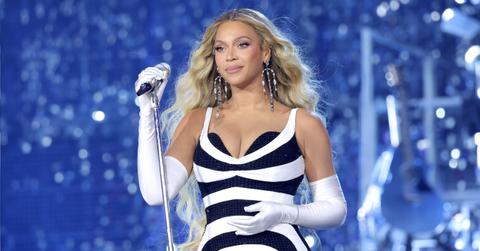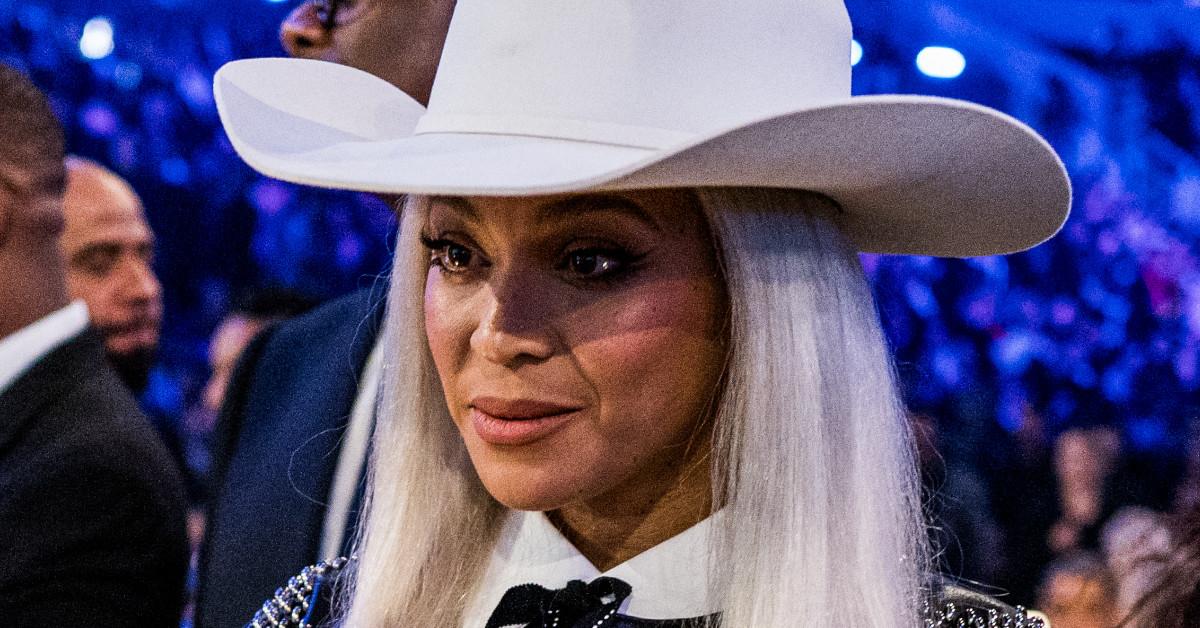“16 Carriages” Has Beyoncé Mourning Childhood Innocence
"16 Carriages" seems to be an unvarnished depiction of Beyoncé’s early life. One lyric indicates that the song was written years ago.
Published Feb. 13 2024, 12:02 p.m. ET

The Renaissance is far from over. Beyoncé effectively broke the internet on Super Bowl Sunday, announcing the upcoming album “Renaissance Act II,” a country-tinged follow-up to 2022’s “Renaissance.” And pundits are already parsing the lyrics of the two singles she released on Sunday, Feb. 11, 2024. So let’s dive into one of them: What does “16 Carriages” mean?
It’s a good question — and fans seem eager to read and decipher the lyrics. The “16 Carriages” page on Genius has already racked up around 160,000 views. Here’s what we know about this melancholy song.
“16 Carriages” is about early fame, life on the road, and growing up too fast.
The single “16 Carriages” — produced by Beyoncé, Ink, and Dave Hamelin, and written by that trio plus Raphael Saadiq — seems to describe the loneliness of life on the road and fame at a young age, as Genius explains.
“Sixteen carriages drivin’ away / While I watch them ride with my dreams away / To the summer sunset on a holy night / On a long back road, all the tears I fight,” Beyoncé sings in the first chorus.

Those “16 carriages” could be a fleet of concert-tour trucks, as one fan points out. Also, it might not be a coincidence that Queen Bey was 16 when Destiny’s Child signed with Columbia Records and released the single “No, No, No,” as Billboard notes.
Beyoncé sings about leaving home at a young age and “workin’ all day.”
In the first verse, Bey sings about a rigorous adolescence: “At fifteen, the innocence was gone astray / Had to leave my home at an early age / I saw Mama prayin’, I saw Daddy grind / All my tender problems, had to leave behind.”
And the first pre-chorus might be a recollection of Beyoncé’s experience in the early days of Destiny’s Child it might be a reflection of her present-day life: “It’s been umpteen summers, and I’m not in my bed / On the back of the bus and a bunk with the band / Goin’ so hard, gotta choose myself / Undеrpaid and overwhelmed / I might cook, clеan, but still won’t fold / Still workin’ on my life, you know / Only God knows, only God knows / Only God knows.”
Then Beyoncé returns to the chorus — subbing in “fears” for “dreams” — before launching into a second verse that reads like a testament to her tenacity: “Sixteen dollars, workin’ all day / Ain’t got time to waste, I got art to make / I got love to create on this holy night / They won’t dim my light, all these years I fight.”
One lyric in particular suggests Beyoncé wrote this song in 2019 or 2020.
The second pre-chorus is a variation of the first, and the mention of “thirty-eight summers” has fans thinking Beyoncé wrote this song when she was 38, either in 2019 or 2020: “Sixteen dollars, workin’ all day / Ain’t got time to waste, I got art to make / I got love to create on this holy night / They won’t dim my light, all these years I fight.”
The bridge hints at discord between parents Tina and Matthew Knowles: “At fifteen, the innocence was gone astray / Had to take care of home at an early age / I saw Mama cryin’, I saw Daddy lyin’ / Had to sacrifice and leave my fears behind / The legacy, if it’s the last thing I do / You’ll remember me ’cause we got somethin’ to prove / In your memory, on a highway to truth / Still see your faces when you close your eyes.”
All told, “16 Carriages” seems like Beyoncé at her most raw and wistful.